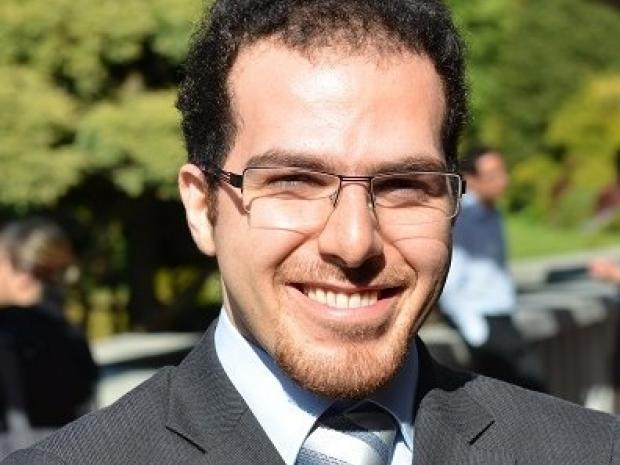A Multi-Scale Modeling Approach for Elastic Properties of Cellular Composites

Mechanical and Aerospace Engineering Department Seminar Series
Dr. Sardar Malek
Department of Materials Science and Engineering
Massachusetts Institute of Technology
Lightweight cellular composites are a new class of materials with great potential for use in the cores of sandwich panels where high specific properties are desirable. The overall behavior of these composites is controlled by parameters at varying length scales. With advances in 3D printing techniques, fabrication of cellular solids with composite cell walls is becoming more feasible. Several parameters may be controlled in printing of such novel materials. Measurement of the effect of each of these parameters on the final properties of cellular composites can be expensive and time-consuming, especially due to directionally dependent (orthotropic) properties of the composite cell wall. Numerical simulations may be considered as a more efficient way for optimizing the structure and studying the effective properties of these materials at various length scales.
Based on full-field finite element simulations, a multi-scale modeling approach for predicting the effective properties of cellular composites is presented. Assuming periodicity of the microstructure and perfect bonding between constituents, unit cells of the material at nano-, micro- and meso-scale are identified and discretized. Numerical experiments are performed using finite element method to characterize the stiffness matrix of the material at each scale. Using this approach, the effect of multiple parameters on the final properties of cellular composite materials can be explored more efficiently. It will be shown how this multi-scale model can be employed as a tool to explore the development of new lightweight cellular composites with novel properties, accessing currently empty regions in material selection charts.
Biosketch
Dr. Sardar Malek is a Postdoctoral Associate working on the multi-scale modeling of cellular composites inspired by balsa wood in the Department of Materials Science and Engineering at MIT, USA. Currently, he is developing a computational modeling framework to understand the mechanics of balsa wood and design novel lightweight cellular composites for the wind energy industry. He received his MASc degree in Mechanical Engineering and his PhD degree in Civil Engineering (Structures) from the University of British Columbia, Canada. In his PhD work, he developed a comprehensive multi-scale model for elastic properties of strand-based composites. In recognition of his PhD research, Dr. Malek was awarded NSERC Alexander Graham Bell Graduate Scholarship (2011) and Michael Smith Foreign Study Scholarship (2012) for conducting research at École Nationale Supérieure de Mécanique et d'Aérotechnique-CNRS, in France. His research interests include multi-scale modeling of composites, viscoelasticity, mechanics of wood and cellular solids, and manufacturing of thermoset composites.

